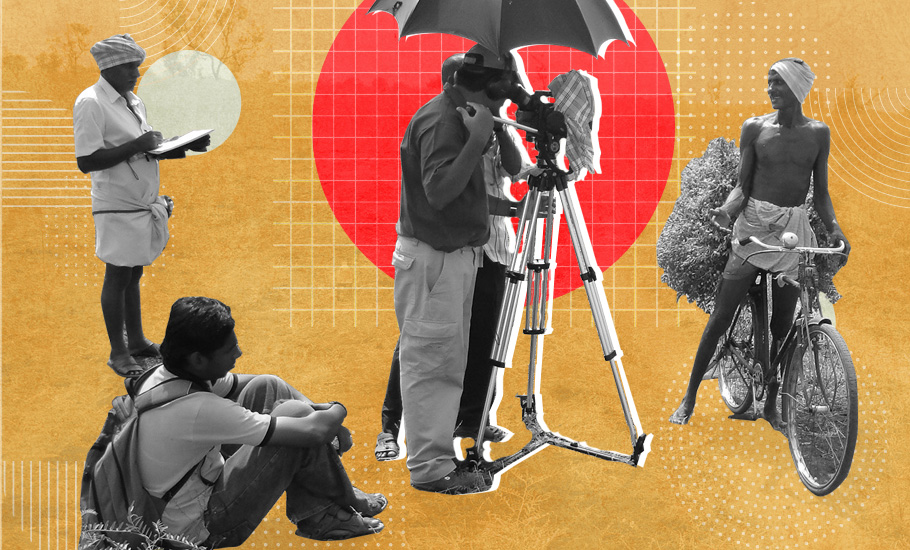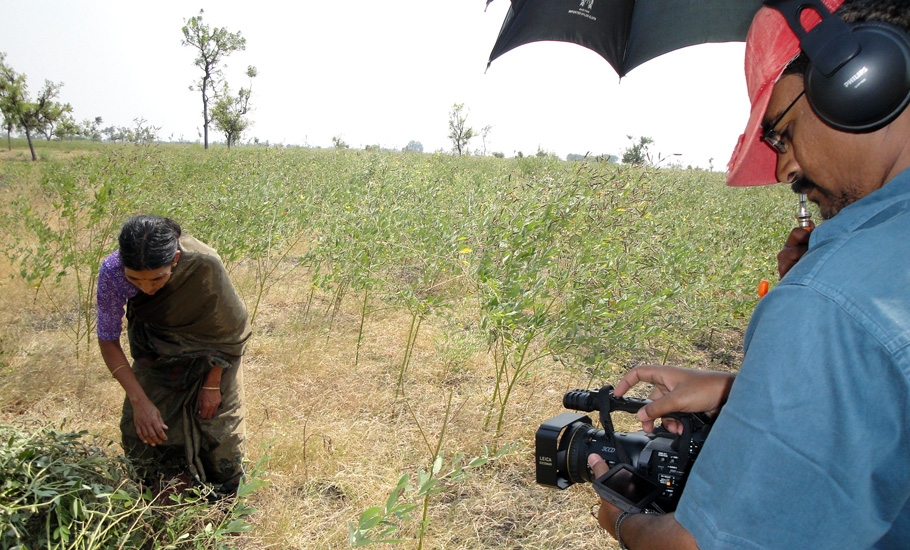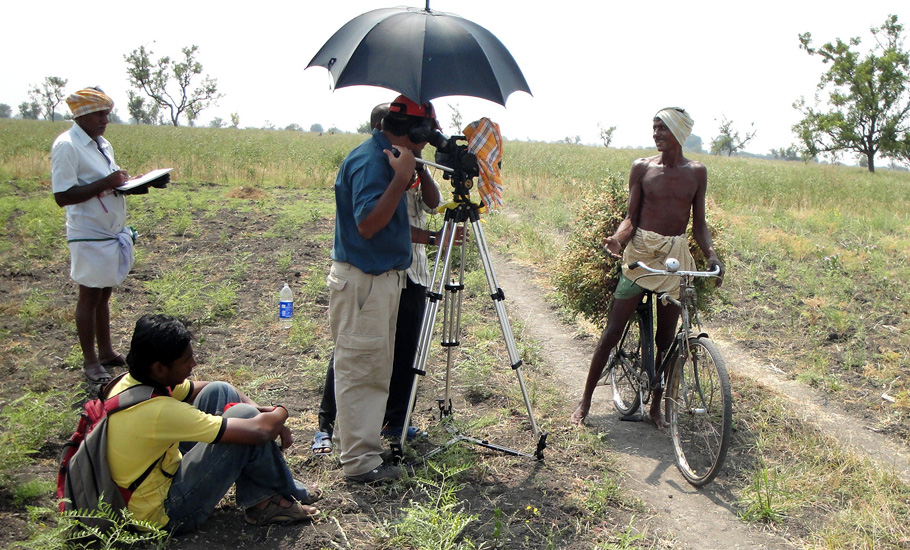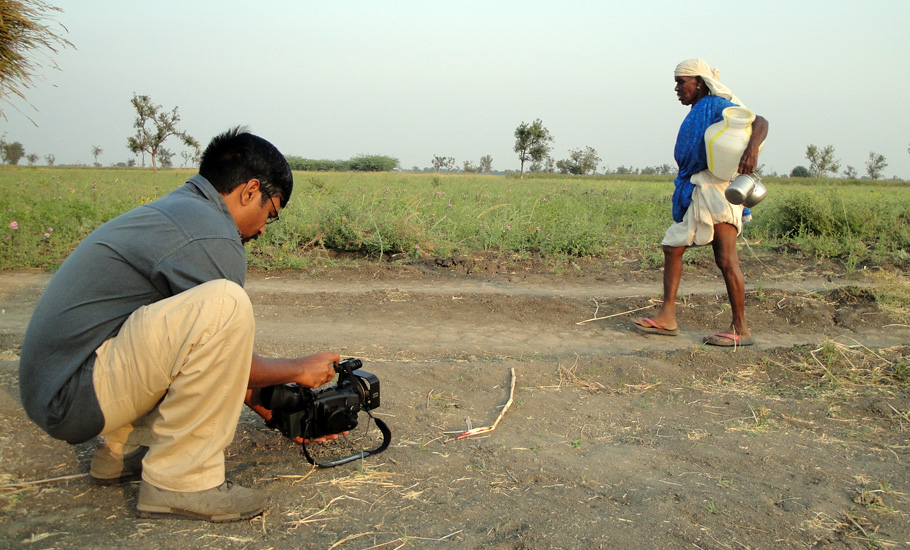
- Home
- News
- Analysis
- States
- Perspective
- Videos
- Education
- Entertainment
- Elections
- World Cup 2023
- Features
- Health
- Budget 2024-25
- Business
- Series
- NEET TANGLE
- Economy Series
- Earth Day
- Kashmir’s Frozen Turbulence
- India@75
- The legend of Ramjanmabhoomi
- Liberalisation@30
- How to tame a dragon
- Celebrating biodiversity
- Farm Matters
- 50 days of solitude
- Bringing Migrants Home
- Budget 2020
- Jharkhand Votes
- The Federal Investigates
- The Federal Impact
- Vanishing Sand
- Gandhi @ 150
- Andhra Today
- Field report
- Operation Gulmarg
- Pandemic @1 Mn in India
- The Federal Year-End
- The Zero Year
- Premium
- Science
- Brand studio
- Home
- NewsNews
- Analysis
- StatesStates
- PerspectivePerspective
- VideosVideos
- Entertainment
- ElectionsElections
- Sports
- Loading...
Sports - Features
- Budget 2024-25
- BusinessBusiness
- Premium
- Loading...
Premium

Seeing the other side through Marupakkam documentary films

An old Hitachi video cassette recorder (VCR) and some mould-infected cassettes lying unused inside the storage room of documentary filmmaker Amudhan RP would easily make the case for the trash can. The young film-maker, however, doesn’t want to throw them away, as the VCR and cassettes were all once the only media through which some films—documentary films—could see the light of the...
An old Hitachi video cassette recorder (VCR) and some mould-infected cassettes lying unused inside the storage room of documentary filmmaker Amudhan RP would easily make the case for the trash can. The young film-maker, however, doesn’t want to throw them away, as the VCR and cassettes were all once the only media through which some films—documentary films—could see the light of the day, and so holds significant memories and value today.
It was in 1996 that Amudhan launched “Marupakkam” (the other side), a collective of documentary lovers, in Madurai.
There are many film clubs, but what makes “Marupakkam” different is that it is exclusively meant for documentaries. Why only documentaries? “In feature films the director is god; in documentary films god is the director,” says Amudhan, quoting veteran filmmaker Alfred Hitchcock.
Marupakkam has created a space for independent filmmaking, focusing on issues of the marginalised and downtrodden in society.

Marupakkam has been screening documentaries on social and environmental issues and conducting documentary festivals across the country. A journey that began much before the digital revolution, the collective has completed 25 years now. It has conducted more than 100 documentary festivals and 500 screenings across the country so far besides documentary workshops and discussions.
A passion since college days
It was while pursuing his MA in development communication at Madurai Kamaraj University that Amudhan happened to attend a video course organised by the Delhi-based Centre for the Development of Instructional Technology (CENDIT) in 1994. The course was an eye-opener for Amudhan, who wanted to make documentaries to highlight the issues of people in and around his hometown, Madurai, in Tamil Nadu.
However, Amudhan soon realised that he could never make a documentary alone, as it’s a collective work, for which he needed support. “There were no venues to show documentaries those days. Film festivals were rare. I discussed the issue with my friends and activists in the town and we finally launched “Marupakkam” in 1996,” says Amudhan.
Even though there were many film clubs across Tamil Nadu, they screened only feature films, not documentaries. So the idea of a collective exclusively for documentaries didn’t click in a place like Madurai. But that didn’t disappoint Amudhan and his friends. He managed to get 50 video cassettes of prominent documentaries from the CENDIT from where he learnt the art of film-making.

Anand Patwardhan’s “In The Name of God” (Ram ke Naam, 1992), “Someting like a war” (1991) by Deepa Dhanraj, “Voices of Baliapal” (1988) by Vasudha Joshi and Ranjan Palit, “In the Name of Medicine” (1987) by KP Sasi, “Battle of Chile” (1975) by Patricio Guzman and “Shark Callers of Kontu” (1982) by Dennis O’Rourke were the prominent ones among the 50 VHS.
From the scratch
To begin with, the team started screening the documentaries in and around Madurai. “The screening those days was done through television. We would carry the VCR, cassette and cables. The TV was arranged from some nearby house. The crowd was always limited to 25 because people couldn’t watch it otherwise,” says Amudhan.
Screening of Anand Patwardhan’s “In The Name of God” evoked tremendous response, as an investigative documentary which held a mirror to the campaign organised by the Vishva Hindu Parishad to construct a Ram temple at the site of the Babri Masjid in Ayodhya, and the eventual mayhem associated with it.
Screening progressed with the involvement of more activists, youth clubs in colleges, trade and agricultural unions and health workers in the region. But there was a problem. Most documentaries were in English, so the team had to translate it instantly to the audience during each screening.
“We would translate the English sub-titles into Tamil, using a microphone. This disturbed the flow of screening, but there was no other option,” he says.
A meeting with late Kerala-based activist-filmmaker C Sarathchandran in 1997 was a turning point. Sarathchandran, who passed away in a train accident in 2010, had a video projector which he had given to Amudhan and his team to screen documentaries.

“He (Sarathchandran) was a great source of energy for beginners like us. He would visit us by spending money from his pocket. The video projector which he gave us helped us screen documentaries for a bigger audience. It was a turning point,” he says.
As a Gulf-returnee, Sarathchandran had video cassettes of many international documentaries. “He got the video projector from Abu Dhabi where he worked. He maintained a wonderful collection of video cassettes. They were original. We would take copies of them and preserve the originals,” he adds.
From screening to making films
After a year of screening, “Marupakkam” started making documentaries. In 1997, the collective made its first documentary, called “Leelavathi” on VHS format. Directed by Amudhan, the 55-minute-long documentary was based on the murder of an activist-turned politician called Leelavathi who fought the water mafia to get clean drinking water for the people in Villapuram near Madurai.
The second documentary, however, was based on the life and struggle of the farmers of Gundupatti near Kodaikanal. Even though the initial documentaries were based on human rights violations, the later ones recorded the plight of the sidelined and marginalised in society.
In 1998, “Marupakkam” organised its first documentary festival in Madurai. “We have conducted film festivals across India besides the annual Madurai documentary film festival. We have done more than 100 documentary festivals and 500 screenings across India. “Marupakkam” is a very informal group. We don’t accept corporate or government funding,” says Amudhan, who has made more than 25 documentaries on various issues so far. Each screening is followed by a discussion. The collective also trains youngsters on how to make documentaries by conducting workshops frequently.

The digital revolution in the early 2000 made the job easier. “Digitization made screening and production of documentaries easier. We could manage to get copies of international documentaries from various parts of the world. This is reflected in the success of our documentary festivals,” he says.
Relevance of documentaries
What is the relevance of documentaries? “Documenaty is close to reality,” says Amudhan. “A feature film has a lot of drama in it. It is essential for that format. But a documentary doesn’t need to have drama in it. We can narrate a story plainly in a documentary. It is not possible in a feature film,” he says.
Even though “Marupakkam” couldn’t organise its usual screenings and festivals for more than a year due to Covid-19, the collective is active in conducting screenings online. An online documentary festival, conducted by “Marupakkam” in July, 2020, received more viewers than its earlier screenings, particularly from foreign countries.
As the collective is gearing up to organise its 23rd edition of the Madurai International Documentary and Short Film Festival in December, 2021, Amudhan hopes that the pandemic will not bring in any stumbling blocks. “A festival gives space to many, to discuss and exchange ideas. We hope we can conduct the festival this time,” says Amudhan.

